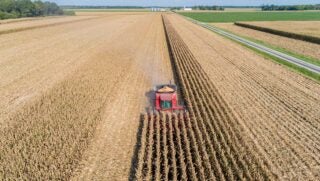The Biden administration issued 43,244 payments to eligible farmers and ranchers today as part of the Inflation Reduction Act’s Financial Assistance Program. These recipients were spread across all 50 states, the District of Columbia, Puerto Rico, the U.S. Virgin Islands, and American Samoa.
This one-time initiative targeted farmers and ranchers who had experienced discrimination in U.S. Department of Agriculture farm lending programs before January 2021. DFAP addressed various forms of discrimination, including race, sex, sexual orientation, gender identity, and religion.
The program distributed $2 billion to those affected by discriminatory USDA loan processes.
“Farmers and ranchers work around the clock to put food on our tables and steward our nation’s land,” said President Joe Biden. “But for too long, many farmers and ranchers experienced discrimination in farm loan programs and have not had the same access to federal resources and support.”
Through the Inflation Reduction Act, Congress allocated $2.2 billion for DFAP. The application process opened in July 2023. Eligibility was based on experiences of discrimination at a USDA loan office, whether in terms of not receiving a loan, delays in loan approval, or unfair interest rates.
The USDA conducted extensive outreach to reach those who might have been discriminated against before January 2021. This included nearly 30 walk-in offices, over 58,000 calls handled by the agency’s call centers, in-person presentations, and collaborations with 18 cooperator groups for outreach in various community settings, according to Agriculture Secretary Tom Vilsack.

Each application was reviewed twice by independent teams to ensure fairness and accuracy. The review process was managed by third-party administrators, adhering to USDA standards and regulations.
Financial assistance ranged from $3,500 to $500,000, with Mississippi having the highest number of applicants, followed by Alabama and Oklahoma. Detailed geographic distribution of the awards is available on the program’s website.
The assistance aims to help applicants continue farming, enhance their operations, begin farming, or mitigate lost income, according to the USDA.
“The completion of the Discrimination Financial Assistance Program is an important moment in USDA’s history and in our journey to becoming a department that truly serves everyone who wants to participate in agriculture,” Vilsack said. “While this financial assistance is not compensation for anyone’s losses or pain endured, it is an acknowledgment. My hope is that this will ensure that many farmers can stay on their farms, contribute to our nation’s food supply, and continue doing what they love.”
The USDA says that it plans to continue reviewing and analyzing information from DFAP applications to improve its equity efforts at national, regional, and local levels.
As part of ongoing equity efforts, the USDA also says that they have implemented changes at the Farm Service Agency to make the farm loan process more accessible and inclusive. These changes include diversified leadership, the ability to apply for and manage loans online, streamlined paperwork, and processes that reduce the need for human discretion in loan decisions.
»Related: Momentum increases in 3rd discrimination lawsuit against USDA


